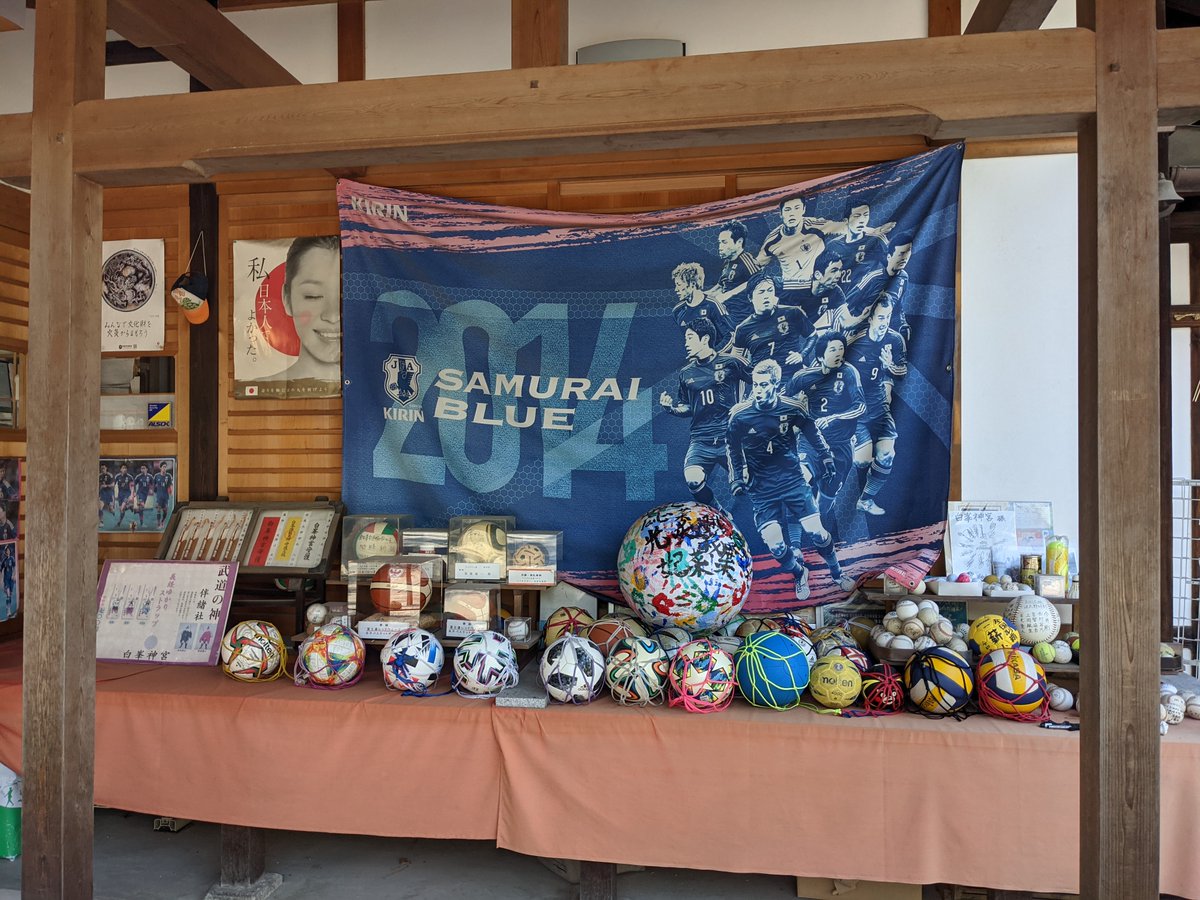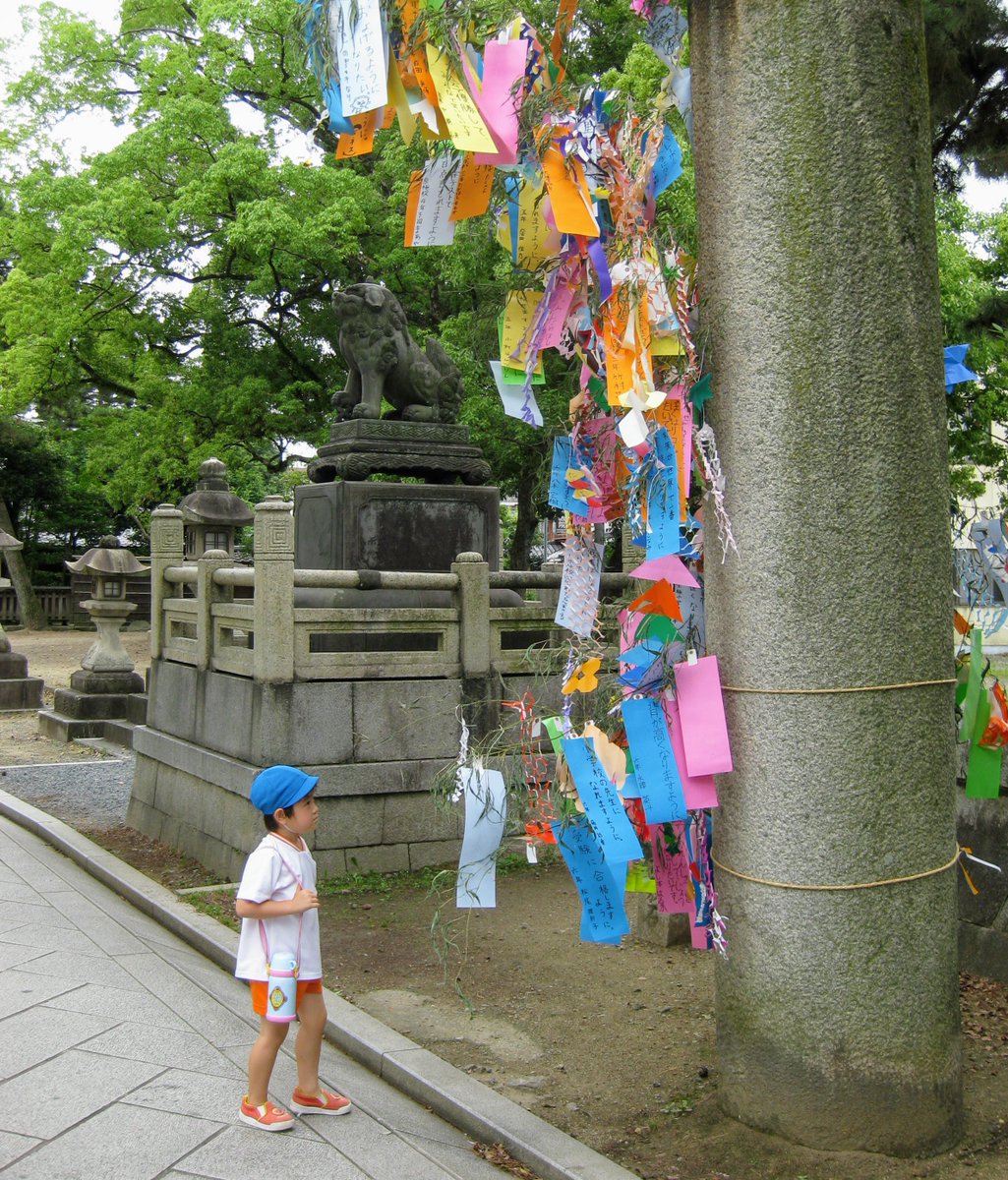Discover and read the best of Twitter Threads about #七夕
Most recents (3)
Asukai-no-Masatsune (飛鳥井雅経 1170-1221) was founder of the Asukai school of kemari.
A skilled poet (134 of his poems appeared in imperial anthologies), he served in the 'Poetry Bureau' (和歌所), helped compile the 'Shin Kokin Wakashū', and authored 'Kemari Ryakki' (蹴鞠略記).



A skilled poet (134 of his poems appeared in imperial anthologies), he served in the 'Poetry Bureau' (和歌所), helped compile the 'Shin Kokin Wakashū', and authored 'Kemari Ryakki' (蹴鞠略記).




Long before Shiramine-jingū, the principle shrine to occupy this land belonged to the 'god of sports' (精大明神). It was paid for by the retired Emperor Go-Toba (後鳥羽上皇 1180-1239) when he visited the mansion of the Asukai (繁乃井殿 'Shigenoi-dono') for a religious festival. 







Go-Toba constructed the shrine beside the 'Shige-no-i' (繁乃井), 1 of 7 famed wells in the capital during the Heian period.
Because of its connection to the Asukai clan & Fujiwara-no-Narimichi (藤原成通 1097-1162), the shrine eventually became home to 'Sei Daimyōjin' (精大明神).
Because of its connection to the Asukai clan & Fujiwara-no-Narimichi (藤原成通 1097-1162), the shrine eventually became home to 'Sei Daimyōjin' (精大明神).
🌟THE STAR FESTIVAL🎋
chirr-chirr! insects also
work their looms...
stars of Tanabata
しやんしやんと虫もはたおりて星迎
-Issa.
Tanabata (七夕), also known as 'Hoshi-matsuri' (星祭り 'Star Festival'), celebrates the reunion of Orihime & Hikoboshi on the 7th day of the 7th month.



chirr-chirr! insects also
work their looms...
stars of Tanabata
しやんしやんと虫もはたおりて星迎
-Issa.
Tanabata (七夕), also known as 'Hoshi-matsuri' (星祭り 'Star Festival'), celebrates the reunion of Orihime & Hikoboshi on the 7th day of the 7th month.




Tanabata (七夕) evolved from 1 of the 'Go-sekku' (五節句), 5 events held on auspicious days throughout the year. Imported by the imperial court from China, these festivals now coincide with the 1st January, 3rd March, 5th May, 7th July and 9th September.
#Kyoto #Japan #七夕 #京都



#Kyoto #Japan #七夕 #京都




Some of the year's most arresting sweets appear at Tanabata🥰
🌟Kameya Kiyonaga's (亀屋清永) 'ama-no-gawa' (天の川) and 'hoshizukuyo' (星づく夜)
@kameyakiyonaga🙇♂️
🌟Tsuruya Yoshinobu's (鶴屋吉信) 'hoshi-matsuri' (星まつり) and 'tanabata' (七夕)
@tsuruya1803🙇♂️
#七夕 #和菓子 #京都



🌟Kameya Kiyonaga's (亀屋清永) 'ama-no-gawa' (天の川) and 'hoshizukuyo' (星づく夜)
@kameyakiyonaga🙇♂️
🌟Tsuruya Yoshinobu's (鶴屋吉信) 'hoshi-matsuri' (星まつり) and 'tanabata' (七夕)
@tsuruya1803🙇♂️
#七夕 #和菓子 #京都




#七夕 : 7th night of the 7th lunar month is, in legend, the one night a year that the separated lovers may meet one another by means of a bridge of magpies in the skies
Tonight is their night: a thread of poems
[📷 Yamamoto Masao]
Tonight is their night: a thread of poems
[📷 Yamamoto Masao]

should a love meant to last beyond time
begrudge mere nights and days
apart?
兩情若是久長時
又豈在
朝朝暮暮
Closing lines from the ci 鵲橋仙 ‘Immortals by the Magpie Bridge,’ by Northern Song Dynasty poet Qin Guan 秦觀 (1049-1100)
#everynightapoem #七夕
begrudge mere nights and days
apart?
兩情若是久長時
又豈在
朝朝暮暮
Closing lines from the ci 鵲橋仙 ‘Immortals by the Magpie Bridge,’ by Northern Song Dynasty poet Qin Guan 秦觀 (1049-1100)
#everynightapoem #七夕

十五始展眉,願同塵與灰
常存抱柱信,豈上望夫台
-Li Bo 李白 (701-62) 長干行
I desired my dust to be mingled with yours
Forever and forever and forever
(and Ezra Pound’s fanciful, compelling translation, “The River Merchant’s Wife: A Letter, after Rihaku”)
#everynightapoem #七夕
常存抱柱信,豈上望夫台
-Li Bo 李白 (701-62) 長干行
I desired my dust to be mingled with yours
Forever and forever and forever
(and Ezra Pound’s fanciful, compelling translation, “The River Merchant’s Wife: A Letter, after Rihaku”)
#everynightapoem #七夕

